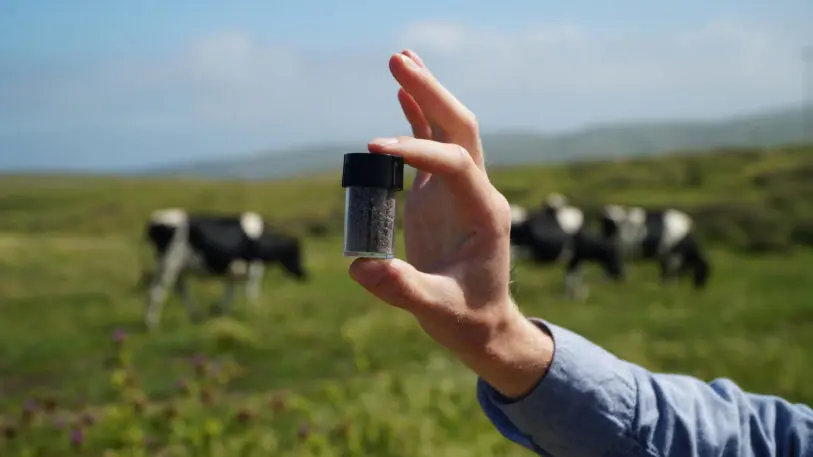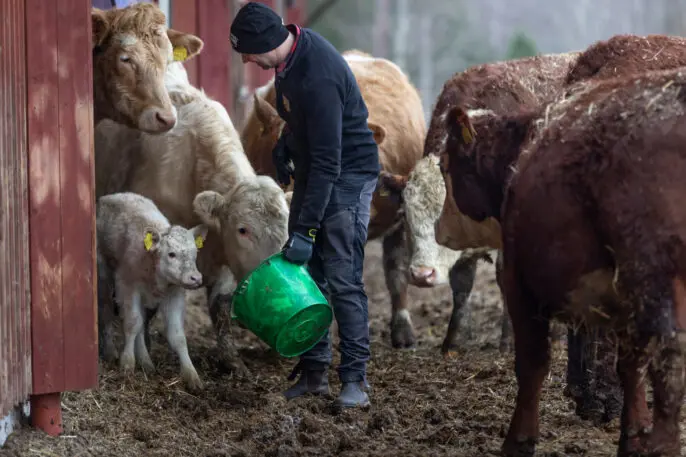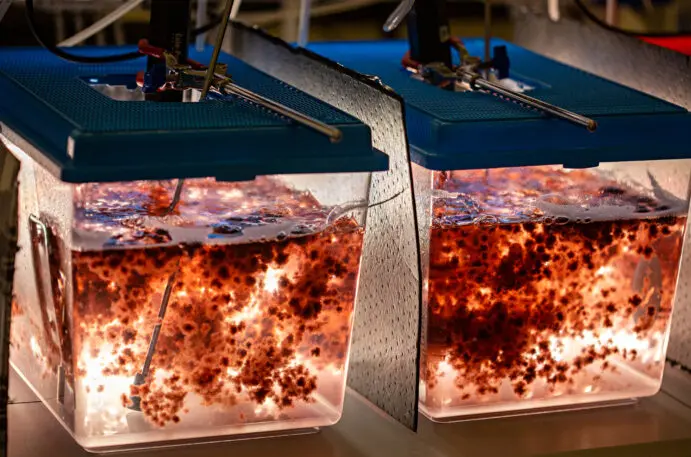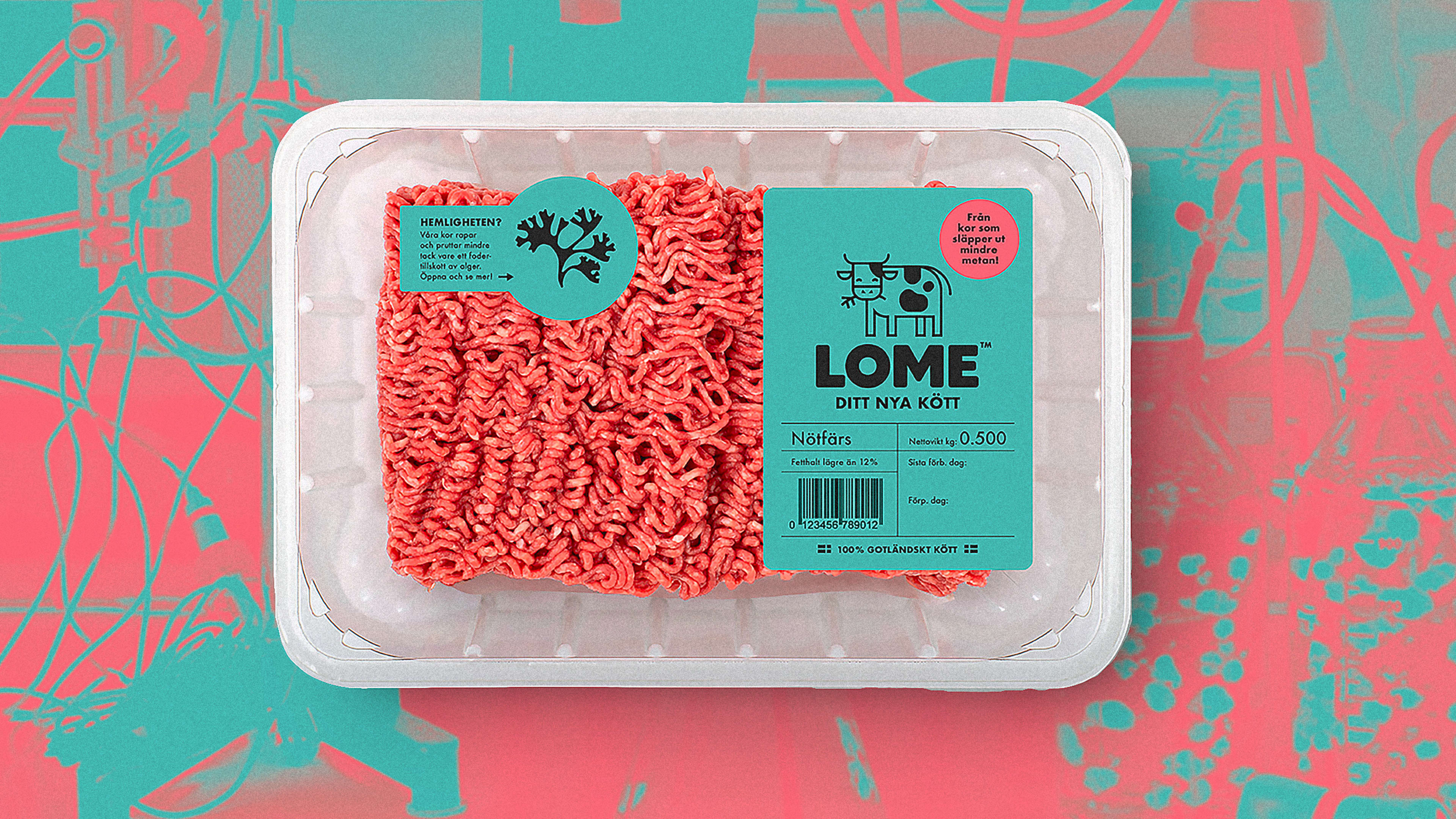At the Swedish grocery chain, Coop, there’s now a new product that isn’t available anywhere else in the world: “low methane” beef. Selected stores are selling a limited-edition run of ground beef, sirloin steak, and beef fillets from cattle that have been fed red seaweed—a supplement that cuts emissions of methane, a potent greenhouse gas that cows and steers emit when they burp and fart.
“This is the first time that low-methane beef is going out to consumers,” says Fredrik Åkerman, cofounder and CEO of Volta Greentech, a Swedish startup that grows seaweed. The startup partnered with Coop and a new food company called Protos to bring the food to market in a pilot. The package, featuring a cartoon cow chewing on seaweed, explains the benefit in Swedish; translation: “The secret? Cows are burping and farting less thanks to our pre-addition of algae.” The brand name, LOME, stands for “Low on Methane.”



The next challenge will be for seaweed producers to scale up production. Volta Greentech grows its product on land, rather than harvesting from the ocean, because it says that’s the best way to ensure quality; also, it could help production grow. The crop itself grows very quickly, says Åkerman, but the company is still developing the systems it will ultimately use. “We’re still testing different prototypes of growing it in greenhouses and growing it in warehouses,” he says. (Another company growing seaweed on land for cows, Blue Ocean Barns, is also at a fairly early stage.)
The seaweed already has been approved for use in cattle feed in Sweden. And although the FDA hasn’t yet approved it in the U.S., farmers and food brands are ready to use it. “A lot of other food brands that we’ve talked to previously are starting to see now that this is working, and it’s a real solution,” Åkerman says. “Growing is a bottleneck in the production. So we can invest in that now because we know the demand is here.”
Corrections: We’ve updated this article to reflect that a cow can release 220 pounds of methane annually, not daily. We’ve also updated this article to reflect that Burger King’s methane-reduced burger is not upcoming, but was from 2020.
Recognize your brand’s excellence by applying to this year’s Brands That Matter Awards before the early-rate deadline, May 3.
